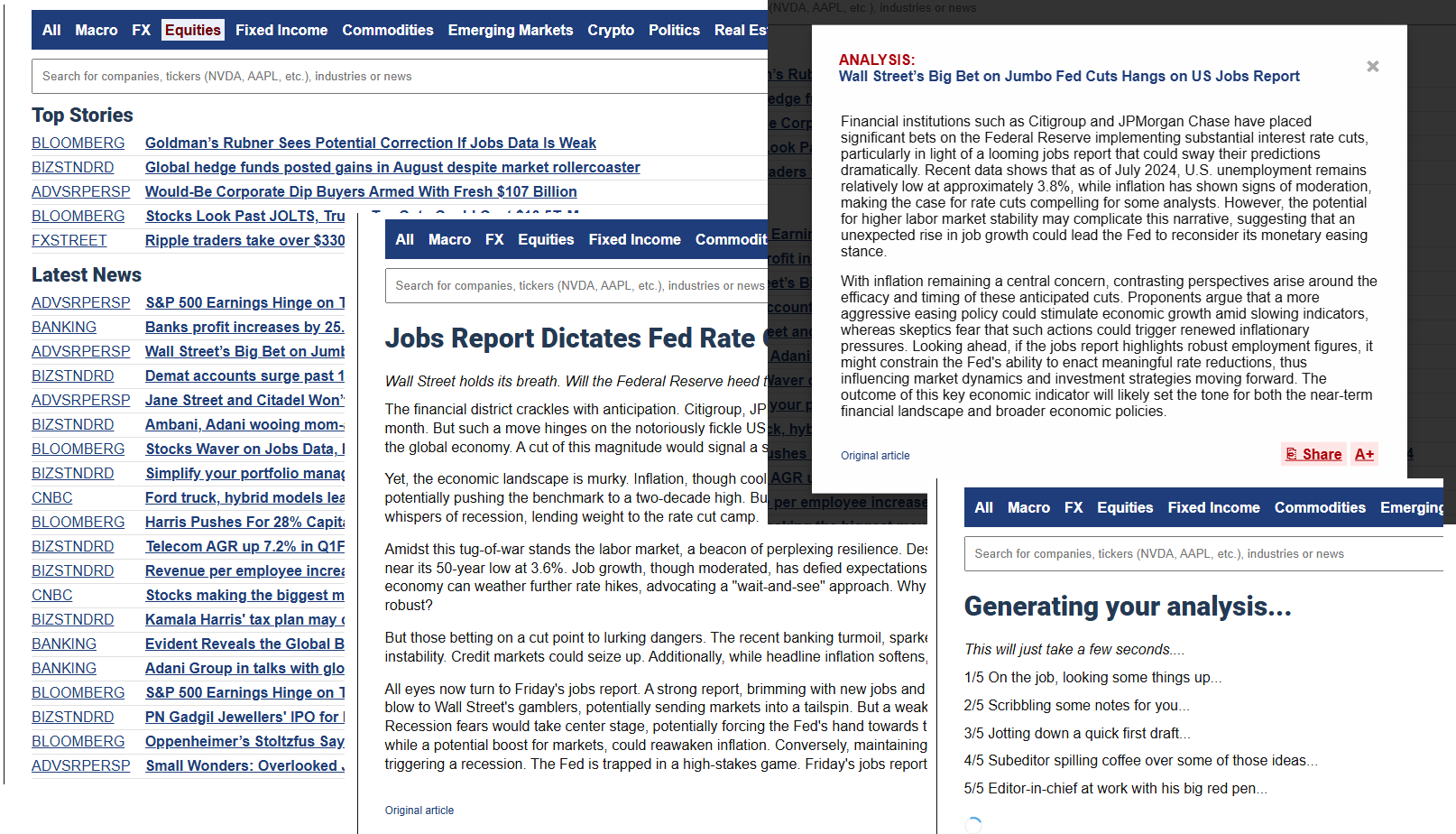Global Business Aligns Amidst Challenges
The modern global business landscape is a multifaceted arena where companies and nations alike must navigate an array of challenges, from fluctuating financial markets to increasing geopolitical tensions. Strategic alignment has emerged as a crucial tool in ensuring stability and growth in this complex environment. This article delves into the narratives across various sectors that underscore the importance and challenge of alignment.
Alignment Healthcare serves as a telling example of the healthcare industry's struggle to balance rapid growth with financial stability. Despite recording an impressive 58% increase in Medicare Advantage enrollment, the company reported a substantial third-quarter loss of $26.4 million. This situation highlights the daunting task healthcare companies face in leveraging rising enrollment numbers to achieve financial success. The broader theme here resonates across the industry: rapid expansion often fails to translate directly into profitability, pressing companies to reconsider their cost-control and revenue-enhancing strategies.
Meanwhile, Align Technology exemplifies strategic shifts within the investment world. The company recently introduced new options set to expire in January 2025 and 2026. This move underscores the significance of time value in options pricing and reflects broader strategic considerations investors must weigh within futures markets. Given the current volatile market conditions, precise timing and forecasting are paramount for optimizing returns, underscoring the need for a deep understanding of market dynamics and a long-term strategic approach.
In the regulatory domain, the Netherlands exemplifies efforts to align national policies with broader EU standards concerning cryptocurrency. By implementing crypto tax monitoring laws in line with EU standards, the nation aims to foster transparency and mitigate risks in cryptocurrency transactions. This regulatory alignment is essential not only for compliance but also for maintaining a competitive edge in the burgeoning fintech landscape, where innovation and regulation frequently intersect.
At the global level, narratives from the Bloomberg New Economy Forum in São Paulo emphasize the significance of non-aligned strategies in today's geopolitical climate. As tensions rise, businesses are increasingly adopting non-aligned positions to protect their commercial interests without compromising stability. These strategies are essential for managing political risks and seizing international opportunities in a volatile international landscape.
India's non-alignment stance amid the Russia-Ukraine conflict offers a nuanced example of balancing geopolitical pressures. Grounded in game theory's subgame perfect equilibrium, India maintains stability by choosing neutrality, thereby safeguarding its national interests. This strategic non-alignment illustrates the complex decisions nations must make in aligning domestic policies with broader international frameworks.
Corporate strategies also underscore this theme of alignment and timing. Cybersecurity firm Wiz's decision to delay its IPO until reaching a $1 billion revenue milestone exemplifies the importance of meeting financial benchmarks before entering public markets. Gold continues to be a store of value, acting as a financial anchor amid economic uncertainty and emphasizing the need for asset diversification.
The financial sector, too, is experiencing strategic shifts. Chetwood Financial's rebranding to Chetwood Bank signals a pivot towards digital banking, illustrating the importance of aligning traditional banking operations with technological advancements. This shift demands a focus on customer-centric solutions and streamlined accessibility.
Central banks play a pivotal role in aligning macroeconomic policies with national economic goals. The Reserve Bank of India's efforts to steer inflation towards a 4% target by 2025-26 exemplify this alignment, showcasing how precise fiscal and monetary policies bolster market confidence and ensure sustainable growth.
In the cryptocurrency realm, Ethereum faces internal challenges with rapid ecosystem expansion. Vitalik Buterin's call for alignment focuses on preventing fragmentation, which could threaten the integrity of the cryptocurrency's ecosystem. This push for cohesion reflects broader challenges across industries, where maintaining organizational coherence amid rapid growth is critical for long-term sustainability.
Ultimately, these narratives, whether from healthcare, technology, digital finance, or global politics, all converge on a central theme: alignment. Across diverse environments, both companies and nations are drawn to strategies that balance growth and profitability while keeping pace with the evolving global context. Whether it's about growing consumer bases, adapting to regulatory shifts, or leveraging geopolitical positions, the ability to align current actions with future objectives becomes pivotal for successful outcomes. As the global stage continues to evolve, strategic alignment remains a cornerstone of sustainable development and competitiveness.
AI-Powered trading insights: join our email list
Real-Time Market Analysis
Get instant insights on market trends, news impact, and trading opportunities.

